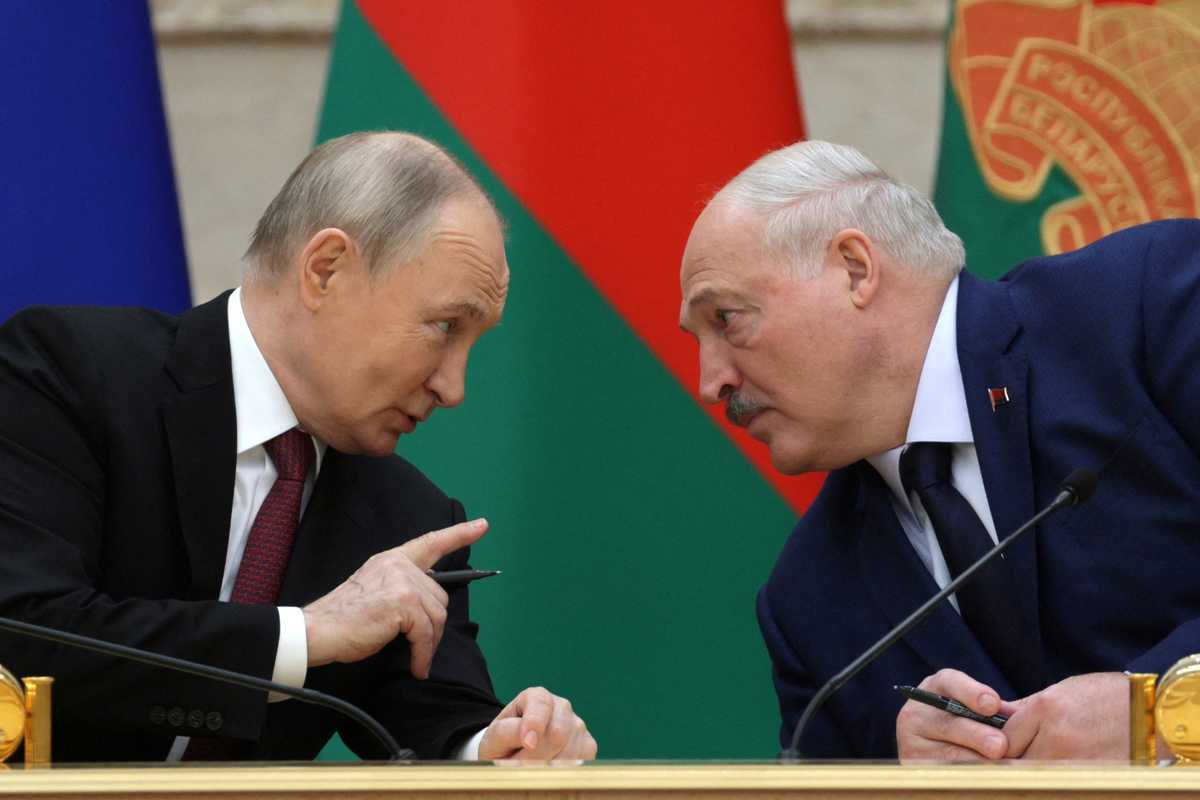Putin says hypersonic missiles could be deployed in Belarus by next year
Russia fired the Oreshnik at a Ukrainian city last month in what Putin described as a first test of the weapon in combat conditions
Reuters
News Agency Partner
Reuters is a leading source of news and information, delivering fact-based reporting and expert analysis on international events and trends.

Russia's President Vladimir Putin and Belarus' President Alexander Lukashenko take part in a signing ceremony following a meeting of the Supreme State Council of the Union State of Russia and Belarus in Minsk, Belarus December 6, 2024.
Reuters
President Vladimir Putin said on Friday that Russia could deploy its new Oreshnik intermediate-range hypersonic missile on the territory of its ally Belarus in the second half of next year.
Putin was responding to a request by his Belarusian counterpart Alexander Lukashenko at a summit in Minsk, where the two leaders signed a mutual defense pact.
"As for the possibility of deploying such, frankly speaking, formidable weapons as the Oreshnik on the territory of Belarus: since we have today signed an agreement on security guarantees using all available forces and means, I consider the deployment of such systems as the Oreshnik on the territory of the Republic of Belarus to be feasible," Putin said.
"I think this will become possible in the second half of next year, as serial production of these systems in Russia increases and as these missile systems enter service with the Russian strategic forces," he added in televised comments.
Russia fired the Oreshnik at a Ukrainian city last month in what Putin described as a first test of the weapon in combat conditions.
He has boasted that it is impossible to intercept, and that it has comparable destructive power to that a nuclear weapon, even when fitted with a conventional warhead.
Some Western experts are skeptical about Putin's claims for the missile, which they say is based on a system that Russia had at one point tested as an intercontinental weapon before putting its development on ice.
Putin told Lukashenko that Belarus - which shares borders with NATO members Poland, Latvia and Lithuania - would determine the targets for Oreshniks based on its territory.
The two men met in the Belarusian capital on Friday to mark the 25th anniversary of the Union State, a borderless union and alliance between the former Soviet republics.
Putin said the mutual defense treaty "will make it possible to reliably protect the security of Russia and Belarus, thus creating conditions for further peaceful and sustainable development of the two states," according to TASS state news agency.
The Kremlin leader approved changes last month which lowered the threshold for a nuclear strike on Russia and extended Moscow's nuclear umbrella to cover Belarus.
Nuclear weapons were withdrawn from Belarus after the fall of the Soviet Union in 1991, but Putin announced last year that Russia was placing tactical nuclear missiles there as a deterrent to the West.
Lukashenko, in power in Belarus since 1994, said in October that any use of Russian nuclear weapons now deployed in Belarus would require his personal assent.






Comments
See what people are discussing